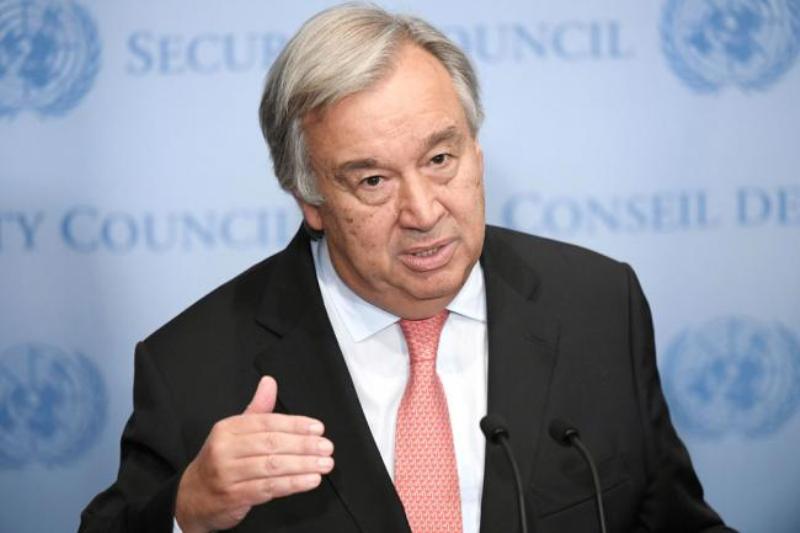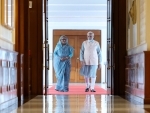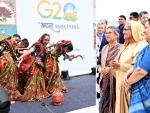South Asia

India and Pakistan should de-escalate, both militarily and verbally: Antonio Guterres
While talking about Jammu and Kashmir and tensions along Line of Control, Guterres was quoted as saying by Dawn News that he was "deeply concerned", adding that he has "repeatedly stressed the importance of exercising maximum restraint".
"Diplomacy and dialogue remain the only tools that guarantee peace and stability with solutions in accordance with the Charter of United Nations and resolutions of the Security Council," Guterres was quoted as saying by the Pakistan-based newspaper, adding that he has repeatedly "reiterated his offer to exercise my good offices should both sides ask."
Meanwhile, rejecting any need for third-party mediation, the Indian government on Sunday responded to the comments made by United Nations Secretary-General Antonio Guterres on the Kashmir issue and said the region remained an integral part of India.
"India's position has not changed. Jammu & Kashmir has been, is and will continue to be an integral part of India. The issue that needs to be addressed is that of vacation of the territories illegally and forcibly occupied by Pakistan. Further issues, if any, would be discussed bilaterally. There is no role or scope for third party mediation," MEA spokesperson Raveesh Kumar said in his statement.
In his statement, Kumar further said: "We hope the UN Secretary-General would emphasize on the imperative for Pakistan to take credible, sustained and irreversible action to put an end to cross-border terrorism against India, which threatens the most fundamental human right - the right to life, of the people of India, including in J&K."
2019: India-Pakistan tie touches new low with Pulwama
India and Pakistan, the two nuclear armed nations, almost reached the brink of war following the terror attack in Jammu and Kashmir’s Pulwama area on February 14 last year which led to the death of 40 Indian paramilitary force personnel. Pakistan-based Jaish-e-Mohammad terror group took responsibility for the attack.
Blaming the neighbouring nation for the terror attack, India carried out airstrikes on terror camps in Pakistan.
The tension between the two nations heightened on Feb 26 when Indian fighter jets moved deep inside Pakistan and bombed JeM terror camps in Balakot.
It was for the first time since the 1971 war that the Indian jets entered inside Pakistan to drop bombs. Following this incident, an aerial combat between air forces of the two countries occurred on February 27 when Pakistan jets entered India. On its way to chase Pakistani jets, an Indian Air Force jet crashed in Pakistan occupied Kashmir.
The injured Indian pilot was captured by Pakistan. But things soon normalised after Pakistan decided to release the Indian pilot-Abhinandan Varthaman.
Pakistan also ended all diplomatic ties, expelled Indian high commissioner and even closed air, land, railway and business ties with India after the Narendra Modi-led government scrapped article 370 in August that revoked the special status of Jammu and Kashmir.



